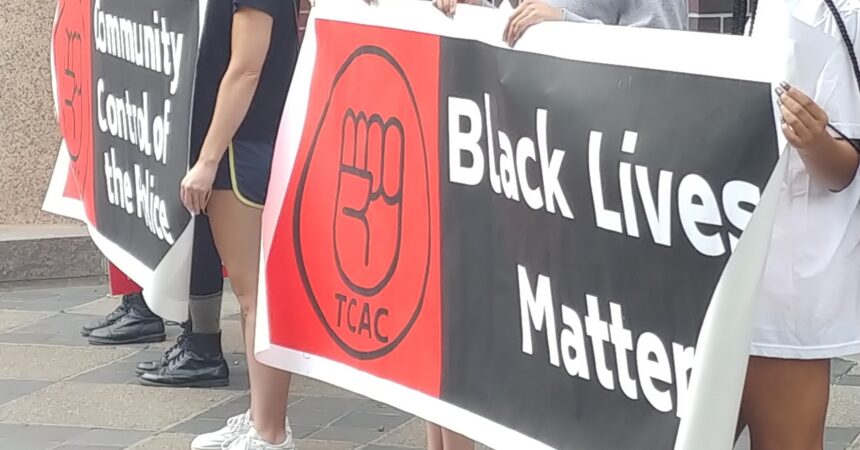
Arguments set in fight over protest law

Photo by St. Clair Murraine
NSF Staff Report
The Florida Supreme Court said it will hear arguments Oct. 4 in a challenge to the constitutionality of a 2021 state law that enhanced penalties and created new crimes in protests that turn violent.
Justices are taking up the case after a panel of the 11th U.S. Circuit Court of Appeals in January sought the state court’s opinion about how to determine the meaning of the word “riot” in the law.
The federal-court panel made the move as it considered a state appeal of a 2021 decision by Chief U.S. District Judge Mark Walker to issue a preliminary injunction against the law. Walker described the law as unconstitutionally “vague and overbroad.”
The appeals court said it was deferring a ruling on the preliminary injunction until after the Florida Supreme Court could weigh in on the definition of riot.
“The proper interpretation of the statutory definition is a novel issue of state law that the Florida Supreme Court has yet to address,” the panel said. “After careful consideration, we exercise our discretion to certify a question to that (Supreme) Court to determine precisely what conduct the definition prohibits.”
Gov. Ron DeSantis led efforts to pass the law after nationwide protests following the 2020 death of George Floyd, a Black man who was killed by a Minneapolis police officer.
Dubbed the “Combating Public Disorder” law, the measure included a series of steps aimed at cracking down on protests that become violent. But groups such as the Dream Defenders and the Florida State Conference of the NAACP challenged the law, arguing that it would have a chilling effect on First Amendment rights.







